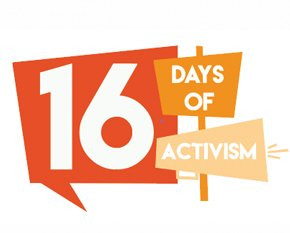
"AN injustice anywhere, is an injustice to us all,” once said American civil rights activist Martin Luther King.
On Monday June 26, we stood with the rest of the world in commemorating the International Day in Support of Victims of Torture also known as Day Against Torture.
On June 26, 1987, the United Nations Convention against Torture and Other Cruel, Inhumane or Degrading Treatment or Punishment came into effect.
Subsequently, in 1997, it was decided by the United Nations General Assembly through Resolution 52/149 that the day should be commemorated as the World Day Against Torture.
The definition of torture in the convention may be summarised as the intentional infliction of severe physical or mental pain or suffering on a person to obtain information or a confession or to execute punishment.
The world day against torture seeks to stand with survivors of torture, to affirm dignity and humanity.
The day presents an opportunity for countries to reflect on the strength of their efforts to prohibit torture.
Zimbabwe is recognised as a constitutional democracy.
- Zim headed for a political dead heat in 2023
- Little Mr & Miss Zimbabwe crowned
- ‘Nec wages hardly reach PDL’
- Mnangagwa regime on UN radar over abuses
Keep Reading
This means that every person living in Zimbabwe must accept the supremacy of the Constitution as mentioned in section 3 of the supreme law.
Under section 53, no person shall be subjected to torture or to cruel, inhumane or degrading treatment or punishment.
The wording of section 53 echoes the sentiments of the United Nations Convention Against Torture and Other Cruel, Inhumane or Degrading Treatment or Punishment (CAT).
Despite this, Zimbabwe is still not a party to CAT.
Of the 55 countries on the continent, only Zimbabwe and Tanzania are not signatories CAT and its protocol.
Last year on June 24, Veritas petitioned Parliament for Zimbabwe’s accession to CAT.
The petition called for the august House to:
- Take all steps necessary for Zimbabwe to become a party to the CAT convention and its protocol, and
- To enact legislation comprehensively and effectively outlawing torture as required by the convention and protocol. [Although the Declaration of Rights in our Constitution prohibits torture, there is no specific legislation that effectively protects citizens from both intra-party and inter-party violence as well as torture that may be inflicted on them by armed and uniformed forces.]
Further, Veritas annexed a model Bill to the petition.
The petition was accepted by Parliament and referred to the Portfolio Committee on Justice, Legal and Parliamentary Affairs.
But one year later Parliament has adjourned without any progress made on the petition.
On at least three occasions, it has seemed that Zimbabwe was on the point of acceding to CAT:
- In May 2001, Parliament passed a resolution that Zimbabwe should accede to CAT.
- In Zimbabwe’s Universal Periodic Review report, presented to the UN Human Rights Council in October 2011, it was stated that ratification of CAT was under active consideration.
- In March 2012, responding to recommendations by the UN Human Rights Council in Geneva, the then Justice minister told the council that Zimbabwe would accede to the convention.
- During the visit of the UN High Commissioner for Human Rights to Zimbabwe in May 2012, Zimbabwe gave her the assurance that the matter was in hand.
Since then the question has arisen in every single Universal Periodic Review at the UN which the Zimbabwe government attends.
The reply is the same: it is under consideration.
It is difficult to understand why government has not acceded to CAT.
Government has much to gain from accession: it would show itself to be an integral member of the international community and ready to co-operate with other governments in upholding universally-accepted human rights.
It would also demonstrate the Government’s willingness to implement the Constitution and to abide by commitments previously made to the UN Human Rights Council and its own citizens.
Historically, Zimbabweans have suffered intra-party, inter-party and State violence, including beatings, torture and killings, inflicted before and after elections — though polling days are usually peaceful.
This year election-related violence is already taking place.
Presidential candidates have called for free, fair and peaceful elections.
It would be preferable if all presidential candidates and political parties and the National Commission on Peace and Reconciliation were to call on the government to accede to CAT and be bound by an international law against torture.
It would be better still if the incumbent president used these two remaining months to sign on to CAT.
It would also improve the election climate if:
- election reforms had taken place in time;
- we had strong laws and sanctions against violence and torture; and
- the Zimbabwe Independent Complaints Commission to deal with public complaints against security services had been set up and was functional. It was mandated under section 210 of the Constitution. After two court cases taken by Veritas, the commission was established de jure but is still not operational.
As we join the rest of the world in supporting victims of torture, it is our hope that our commitment as a country to this day will not be mere lip service.
We call upon the next government to:
- Accede to the United Nations Convention Against Torture and Other Cruel, Inhumane or Degrading Treatment or Punishment;
- To domesticate the convention and enact relevant legislation; and
- To make fiscal commitments to the Zimbabwe Independent Complaints Commission to deal with violence committed by the security services.-Veritas
Zim must strive for universal access to clean drinking water
THE cholera outbreak started on February 12, in Chegutu, a town which has a population of 66 258 in Mashonaland West province.
The suspected case was confirmed by the Health and Child Care ministry on February 15, while a second case was reported, again in Chegutu, on February 17.
This saw government set up a cholera treatment centre in the town. By February 26, 37 suspected cholera cases with two confirmed positive cases and no deaths were reported in Chegutu district.
As of April 18, 2023, there had been 579 suspected cholera cases reported, of which 102 were culture confirmed, and nine deaths.
The situation was stable until the last situational report of June 1, 2023 showing an ascendant curve in cases and death since late May to June 1.
Cases have now been reported from all the 10 provinces of the country, without epidemiological link to each other.
By April 18, there had been 168 rapid diagnostic tests conducted with 73/168 positive (42% positivity) and 104/359 positive cultures (29 % positivity).
Although this cholera outbreak occurred outside the rainy season, it mimicked the cholera outbreak of 2018 that started in the same town and spread to other hotspots within the country.
To date, 17 cholera hotspot districts in the country have been severely affected and cases are on the rise.
The Health ministry, through the Zimbabwe cholera SitRep of May 28, 2023, reports a cumulative total of 1 649 suspected cholera cases, 423 confirmed cases, 1 528 recoveries, 11 confirmed deaths and 33 suspected deaths.
Cholera is an acute diarrhoeal disease that can kill within six hours if left untreated.
Zimbabwe faces challenges to attain universal access to safe and clean drinking water, as well as adequate sanitation, especially in densely populated and unplanned settlements in urban settings as well as the rural areas.
These conditions, coupled with the poor hygiene practices among citizens, has caused recurrent outbreaks of water, sanitation and hygiene-related diseases.
Although cholera is endemic in Zimbabwe, the country has not had an outbreak since 2018 owing to various cholera preventive interventions being implemented within the context of the country’s framework for the National Cholera Elimination 10-Year Roadmap and the Zimbabwe Multi-sectoral Cholera Elimination Plan 2018-28.
This outbreak may represent a wave of cholera revival that must be contained.
All districts are now affected or reported with suspected cases. Across the country, the most affected areas are informal settlements, where access to clean water and sanitation is limited.
The outbreak has also spread to schools and other public institutions, posing a risk to the wider population.-International Federation of Red Cross and Red Crescent Societies











